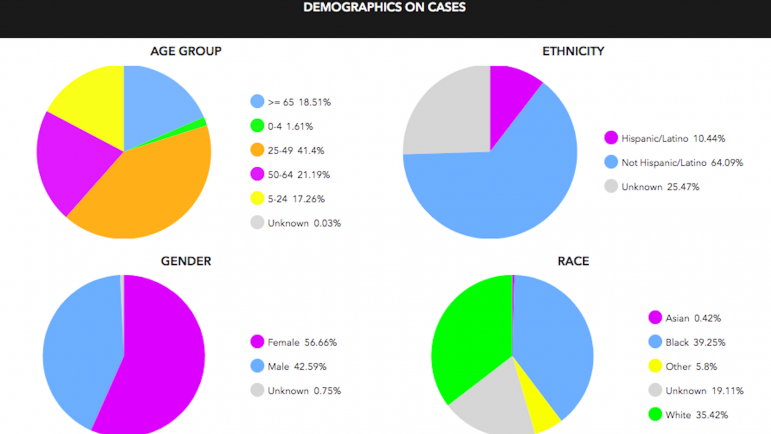In the last month, Alabama saw the number of coronavirus cases double among 5 to 24-year-olds, according to data from the Alabama Department of Public Health. The state also recorded a new daily high of 1,129 cases between 10 a.m. Wednesday and 10 a.m. Thursday.
Experts warn that gatherings over the July 4th weekend could cause another surge in coronavirus cases if people don’t wear masks and use social distancing measures.
At a press conference Thursday, Dr. Jeanne Marrazzo, UAB’s director of infectious diseases, said everyone should wear a mask, including younger people who tend to have milder cases and may not even realize they are sick.
“They’re not as likely to stay home,” Marrazzo said. “They may feel relatively okay like they can go out and do their usual thing. That puts them at great risk for serving as an intense focus of transmission in the community.”
Marrazzo said the number of new cases among younger people has increased since Memorial Day weekend. But she said that wasn’t unexpected after statewide restrictions were relaxed at the end of May. It can take up to five weeks to see accurate data of coronavirus transmission.
Marrazzo said Alabama can still change the upward trajectory of new coronavirus cases.
“If you are going to be close to someone, within six feet, just wear a mask. You can do it just for that brief encounter and then you can take it off,” Marrazzo said.
U.S. Senator Doug Jones of Alabama said it will take more than political leadership to normalize wearing masks.
“It’s so important that businesses, churches, everyone step up on this mask-wearing,” Jones said. “Let’s get everybody used to this and it not be such a political issue … such a social stigma issue. It’s just something that we do like buckling the seat belts when we get in a car.”
Both warn that if the number of new cases doesn’t decline, Alabama could see other measures like an emergency statewide mask order or another economic shutdown.
“Shutting down like we did in March and April was like doing a sprint,” Marrazzo said. “We are now in a marathon. This is not going to go away anytime soon, so we’ve got to figure out ways to work through this that do not cripple us – socially, economically, psychologically and emotionally.”

